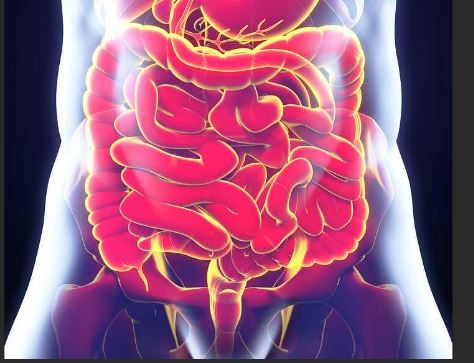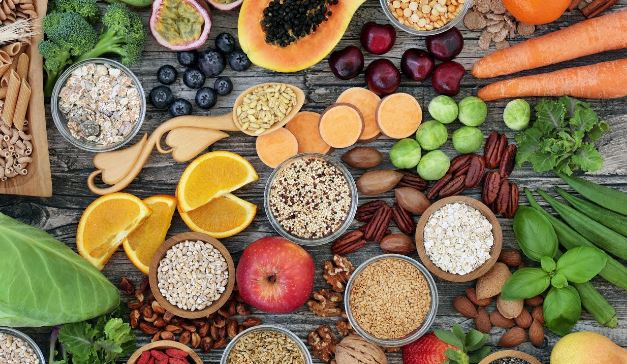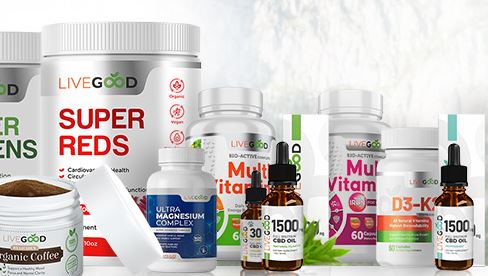Better Gut Health
Want to improve the health of your gut flora? If you’re in good health you are better off ditching the probiotics and switching to these prebiotic foods and supplements instead.
What’s wrong with Probiotics?
The truth is while Probiotics have been shown to be useful in treating some gut related conditions such as Irritable Bowel Syndrome and certain forms of Inflammatory Bowel Disease, there’s little evidence of healthy adults seeing any significant health benefits from taking probiotic supplements.
There has been a great deal of noise surrounding the potential of probiotics over the last 10 years – but this has come with much skepticism as the marketing has outpaced the science – especially with the probiotic supplements market now worth an estimated 50 Billion, and growing at a rate of 7% annually.
After all the logic seems makes sense – the idea that if you supplement your diet with the strains of probiotics associated with good health – you could expect to see increased presence of these beneficial strains and species in your gut – and with them health benefits.
The reality is that the majority of microbes within a typical probiotic supplement are unlikely to colonise in sufficient numbers, due the diversity of the other bacteria present and the diet of their host amoungst other factors. Our diet has a far more significant impact on the make up of microbes in our gut than probiotic supplements could.
However there is a growing body of evidence to show that the increased consumption (and variety) of dietary fibres and resistant starch (also referred to as prebiotics) is linked with both an increase diversity in gut bacteria. This makes sense as the bacteria and microbes in our gut eat what we eat – so by eating more of the foods favored by beneficial bacteria and microbes, will help cultivate more of these species
Better Gut Health >So what are Prebiotics?
Prebiotics are non digestible dietary fibres found in foods that when consumed are associated with a large variety of health benefits such as an improved immune health and mineral absorption, and overall health. High fiber foods are rich in prebiotics to help cultivate healthy gut bacteria.
Health benefits associated with Prebiotics:
- Improved immune system function
- Better cardiovascular health
- Reduced body fat levels
- Reduced inflammation
- Reduced risk of allergies
- Reduction in pathogens
- Enhanced cognitive function
- Improved mood
How do Prebiotics help us?
When these prebiotic fibers and compounds are consumed they pass through the small intestine to the large intestine and colon where they are digested or fermented by the beneficial strains of bacteria and microbes that reside there to form metabolites such as Acetate, propionate, and butyrate.
Things to Consider for Better Gut Health
- how to improve gut health naturally
- worst foods for gut health
- supplements to improve gut health
- foods to improve gut health
- probiotics for gut health
- how to increase good bacteria in gut naturally
- gut health test
- best foods for gut health and weight loss
- how to improve gut health
- ways to improve gut health
- ways to improve your gut
- eat fermented foods
- improve your gut bacteria
- digestive system ways
- gut health naturally
- bacteria in your gut
Types of Prebiotic Fiber
Prebiotic fiber is mostly found in whole grains, nuts, seeds, legumes, fresh fruits and vegetables. Some of the most widely recognised prebiotics include Fructooligosaccharides (FOSs), inulin, and galactooligosaccharides GOSs. However, there are many other types of prebiootics which offer a variety of health benefits to consumers, although they vary effectiveness.
Below are 8 categories of prebiotic dietary fiber
Beta-glucan
Beta-glucans are soluble compounds that are found in the walls of common cereals and grains, as well as foods such as mushrooms, algae, seaweeds and other marine plants. Oat and barley are the 2 highest sources of beta-glucans (see below). Beta-glucans can have a wide range of benefits on our GI health.
In studies where participants consumed at least 3 g of oat fiber β-glucan per day, they were found to decrease blood levels of LDL cholesterol which can reduce the risk of cardiovascular diseases.
Inulin, Oligofructose and Fructooligosaccharides (FOSs),
Inulin, oligofructose and FOS’s are natural compounds found in >36,000 plant species (Carpita et al. 1989) Fructooligosaccharides are forms of oligosaccharides and occure naturally in foods such as bananas, onions and artichokes. Due to their sweet flavour they are often used as as an alternative to sugar because as they contain fewer calories but with up to half the sweetness of table sugar. They are often added to foods to increase the fibre content.
One of the widely recognized nutritional benefits of inulin and oligofructose are their ability to stimulate the growth of Bifidobacteria – a beneficial strain of bacteria which helps inhibit the growth of pathogens and harmful bacteria, while supporting the immune system and aiding the absorption of minerals and vitamins.
GOSs
Galacto-oligosaccharides (GOS) are made up of oligosaccharides and due to their chemical bonds they largely resist human digestion but stimulate the growth of beneficial strains of bacteria such as bifidobacteria and lactobacilli. These bacteria in turn then help stimulate and support the immune system, as well as helping with the absorption of vitamins, minerals and other essential nutrients for the body, and in generating H2 gas[2] a powerful anti-oxidant.
Isomaltooligosaccharides (IMO)
Isomaltooligosaccharides are found naturally in some foods such as honey, and are also manufactured commercially and commonly used in dairy, bakery, cereal, and meat products.
Lactulose
Lactulose is a man-made compound used as a drug to treat constipation, aid bowel movements and treat high ammonia levels in the blood due to liver disease.
It is commonly available under the brand-names Enulose and Generlac.
Resistant Starch and Resistant Maltodextrin
Resistant Starch is a broad categorization of many classes of starches formed under a variety of conditions, but all resist human digestion in the small intestine. Resistant starches can be both found naturally in food and can be man made. Resistant maltodextrin is synthetic chemical produced by from cornstarch.
12 Recommended Sources of Prebiotic Fiber
Dandelion greens
Dandelion greens are a great source of inulin amoungst other fibres with up to 4 grams of fiber per 100-gram serving.
Dandelion greens are also known for their anti-inflammatory, antioxidant, cholesterol-lowering benefits – as well as helping to reduce constapation
Jerusalem artichoke
Jerusalem Artichokes contain approximately 2 grams of dietary fiber per 100 grams, of which 3/4’s are made up of inulin. They are also high in thiamine and potassium which support the nervous system and promote proper muscle function (13).
Green bananas or green banana flour
While Bananas contain small amounts of inulin, unripe (green) bananas are high in resistant starch – a form or starch which behaves in a similar way to dietary fibre – bypassing digestion in your small intestine (where digestible starch is turned into glucose) and carrying on to the colon where it is fermented by the beneficial bacteria into metabolites.
fiber in bananas has been shown to increase healthy gut bacteria and reduce bloating (2Trusted Source, 30Trusted Source, 31Trusted Source).
Barley and Oats
Barley and oats are made up of between 3-8% beta-glucan, a prebiotic fiber that promotes the growth of beneficial bacteria in the gut.
Beta-glucan in barley and oats has also been found to lower both LDL cholesterol (bad cholesterol), and blood sugar levels
Barley is high in selenium – to support thyroid function, antioxidant benefits associated with protecting against many forms of cancer.
Oat also offer antioxidant and anti-inflammatory protection due to their phenolic acid content
Konjac Root
Konjac Root, also known as glucomannan, is native to parts of Asia and used in Traditional Chinese Medicine as well as in cooking as a thickening agent. It has been recognized universally for its weight loss benefits and in helping to reduce LDL cholesterol.
In addition to konjac was found in one study to help reduce acne and improve the overall skin health of patients. It has also been found to help reduce allergies.
Konjac supplements can be found easily online or in most health shops.
Chicory Root
Chicory Root comes from the same family as the dandelion and has been used for centuries in cooking and traditional medicine. It is also used as a substitute for coffee.
Fresh chicory root is made up of up to 70% inulin and in studies has been found to help improve the control of blood sugar, particularly in people with diabetes and has also been found to aid weight loss.
Chicory root can be boiled whole to eat with food, brewed as a hot drink instead of coffee – or as a supplement from many health stores.
Burdock Root
Burdock Root is from a family of weeds related to sunflowers and often drunk as a tea with a wide range of benefits including the treatment of cancer, diabetes, and inflammation. Other benefits include helping to lower blood sugar levels and treat diabetes Treating and preventing infections.
Burdock can be taken as a tea or as a powder in a supplement form available from many health stores.
Flaxseeds
Flaxseeds are a widely celebrated superfood with a wide variety of health benefits associated. In addition to their high fibre content, flaxseeds are high in protein, omega-3 fatty acids, in addition to being a rich source of some vitamins and minerals.
A tablespoon of flax seeds contains 3 grams of fiber, which makes up 10% of the daily recommended intake. As with other prebiotics flaxseeds help promote the growth of beneficial strains of bacteria in the gut and are recognised for helping to lower blood sugar levels and treat diabetes Treating and preventing infections.
Yacon Root
The yacon root bears a similar appearance to the sweet potato – and along with the sweet potato originates from South America. The Yacun root is high in fructoogliosaccharides (FOS) which give it the sweet taste.
Jicama Root
Jicama Root is an edible root vegetable that originates in Mexico, often referred to as mexican turnip – and is made up of approximately 5% dietary fiber. It can be found whole all year round in better stocked supermarkets – or specialty Latin American markets and stores. It can be bought as a powder or supplement in many health stores and online.
Seaweed
Seaweeds contains a large number bioactive compounds, such as polysaccharides and phenolics and have long been recognised for their health benefits as well as value as prebiotics. Many of the compounds found in seaweed are resistant to digestion in the small intestine, but stimulate the growth of beneficial gut bacteria and their fermentation into short chain fatty acids (SCFA’s).
Potato resistant starch
Potatoes (and potato products such as mashed potatoes, chips and french fries) have gained a reputation for adding inches to the waist band for good reason. When boiled or fried they are easily digested into glucose, in your small intestines.
However when a potato has been cooked and then left to cool completely to room temperature – or better still in the fridge – some of the starch reforms in a structure that is resistant to human digestion
You can buy Resistant Potato Starch from many online retailers and health stores if you dont want to make your own. Bob’s Red Mill Unmodified Potato Starch is one of the most well known brands providing a good source of Resistant Starch. They tend to be bland in flavour so can be added to smoothies, omelettes, or shakes with other ingredients to make up a healthy addition to your diet.
Better Gut Health, but are Prebiotics Safe?
Prebiotics are very safe so long as they are consumed in modest quantities. It is highly unusual for someone to experience serious problems from prebiotics as these are all foods found in our diet to a greater or lesser extent.
However you may experience some mild side effects as you start taking them – as you might from eating beans and brussel sprouts.
Conclusion
Prebiotics cover a wide variety of different dietary fibres, all of which help improve our digestive and physical health. However as with any healthy diet – moderation, variety and balance and are key.
The most common and recognized prebiotics include FOSs, inulin, and GOSs which have been most widely studied and as a result have the most evidence of health benefits, but many other types of prebiotics may be just as effective.
As long as these are consumed regularly but in moderation (ie as you might expect to find in a healthy balanced diet), all of these categories of prebiotics will support digestive health.
Best Kept Secrets for Healthy Gut During Stress
Live Good Best Health and Wealth Products
What is Keto? Keto Friendly Foods for a Healthier Gut
Can Change in Diet & Gut Support Help Irritable Bowel Syndrome (IBS)
Leading Gut Health Solution for Better Health and Lose Weight Naturally
Healthy Digestion Finally with Amazing Natural Ingredients
Western diet harms immune system – increasing risk of food poisoning & infection
The post Ditch the probiotics, take these 12 supplements for better gut health instead appeared first on The Good Gut.


